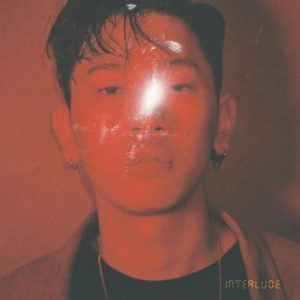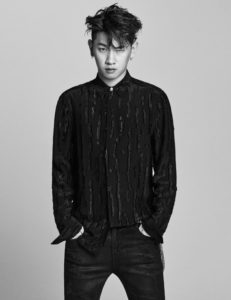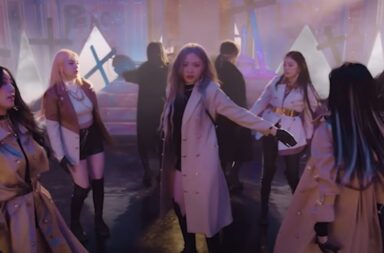 Crush’s new album is a statement about new beginnings. How does one express that in an album? By leaving any reservations and hesitance behind, and by just doing anything and everything you want to do. It’s experimental as anyone can get in mainstream pop music, with minimal regard to commercial viability. It’s simultaneously horrifying, funny, beautiful, and amazing. The album is a maximalist statement, one that guides you through the ups and the downs of the creative process.
Crush’s new album is a statement about new beginnings. How does one express that in an album? By leaving any reservations and hesitance behind, and by just doing anything and everything you want to do. It’s experimental as anyone can get in mainstream pop music, with minimal regard to commercial viability. It’s simultaneously horrifying, funny, beautiful, and amazing. The album is a maximalist statement, one that guides you through the ups and the downs of the creative process.
The album offers a series of head-whipping twists and turns, starting with the first track “In the Air.” The song declares freedom. Look forward, it says, because there’s nothing tying me to the past. “Join me in the air,” Crush sings, over a backdrop of a melodic chorus woven through with a piano track. A series of long, trailing notes on a trombone declare a second coming.
But the track offers no triumphant finish. At a mid-point, the song suddenly segues into a long spoken word verse over a minimal strings-only accompaniment where Crush awkwardly keeps trying and failing to express the sheer expanse of his gratitude over the years to his dear friend Hyosub (Crush’s birth name). It’s a message to himself, about his music, and how he’s arrived at this point. Talking isn’t his forte, however, so Crush turns his attention back to the music in the next track, to show what he’s become.
What is R&B to Crush? Listen to “Woo ah.” This track is sex. Slow, rhythmic, lip-biting, sweat glistening. Seeing colors swirling behind closed eyelids because it’s. So. Damn. Good. “Do you love me like I love you?” Crush asks. Yes. At least it feels like it. Because this is seduction at its finest. Minimal piano and bass beats transition to slinky, full-bodied R&B ones that reverberate with the repeated moans of chorus. A visual feast of a music video strings together a series of bedroom imagery, elevating this song’s sensuousness through its sticky, warm textures and in-your-face sexual metaphors.
But what makes this song unique is that it is missing the final chorus. 99% of pop songs will have three choruses, with a bridge between the middle and the final choruses to build up the emotional experience of a song into an explosion at the end. In this song, the last chorus never arrives. Instead, what you have here is the bridge as the ending, and it is a beauty. The middle chorus transitions to a hazy dream pop synth beat where Crush weaves in and out of key changes, like the uncertainty at the precipice of the sublime. A bridge to nowhere.
After all the build-up, one might expect the climax of “Woo ah” to be the next track, “9-to-5.” But although it is certainly explosive, what actually greets you is nothing that you’d expect. The song starts by alluding to sweetness and cookies and milk, but once Crush’s got your rapt attention, he’s ready to leave you blinking and blindsided while he leaves for work. By this time though, you are committed to being strung along and listening to whatever he’s got to offer. Bait, and switch.
So it’s back to the studio, with Gaeko, and Crush is going to school you on how he’s going to do things. It’s atmospheric grandstanding, but you’re going to sit there and listen. And enjoy it. Over an exploding, slow-tempo deep-bass hip hop beat with constant hi-hat patterns and a backbeat snare, Crush’s auto-tune distorted vocals show off his new studio and his unending desire to work, with not enough time in a day to fit in everything he wants to do. The song is about ambition, and he’s parading on his new studio equipment with his excessive mixing. It’s his way of shoving his middle finger in front of everyone’s faces. He doesn’t give a fuck about what you think, music is not about your pleasure, it’s his domain, and you’re under his control.
Then, Gaeko comes in. His verse is a statement from Amoeba Culture to every detractor out there. Gaeko, in 9-to-5:
We’re completely mad [we take it to the max] Machine gun to the ear, tuk tuk, like Furiosa
The satisfied voices of the [unknown]s who lie to themselves
Let me ask you something, are you really happy
Are you truly happy? Sure, sure
Keep lying to yourself
It’s too high up here, can’t hear you
More so than with his lyrics, Gaeko delivers with his rhymes, his signature crisp delivery and cadence out in full force. His complex rhyme schemes, mixing in onomatopoeias and ideophones to create complexity, create a burst of flow, culminating in violent, staccato that leaves your chest thumping. The music video is a slasher film where a burly butcher is chasing after Crush and Gaeko, and by the end of this verse, Gaeko’s back is shown to the viewer, grilling meat. Flip. The gesture is prehistoric and guttural, like a T-Rex, which, despite its stubby arms, dispatches its victims with efficiency and gusto.
After this assault, the next track, “Castaway” is a winding down, an unexpected EDM mix, pleasantly lethargic. Let it wash over you. “Feel the waves / Wash away all the pain / It don’t mean nothing to me,” Miso sings. But it’s not altogether an easy and relaxing experience. There’s some residual pain there: “I thought it was a long ride to the start / Above the clouds I saw a light / To guide us through the hard time.”
 Crush is playing around in his studio again, but instead of the grilling session of the previous track, he is absorbed in musical experimentation. Muffled synth beats over waves of breathy doo-wooping vocal rhythms get stiffened with an overlay of snares, then transitions to a dreamy deep-bass interlude before a repeat of the verse. Further on, the instrumental ending in this track is where the ghost of Zion.T makes an appearance. As in Zion.T’s “Neon (Director’s Cut)” in his seismic Red Light, walls of synthetic waves pound your ears, but unlike Zion.T’s volumous elegance, here you have Crush’s loud and uncontrolled play. Crush is finding his own voice in the studio, while continuing to show off a little bit.
Crush is playing around in his studio again, but instead of the grilling session of the previous track, he is absorbed in musical experimentation. Muffled synth beats over waves of breathy doo-wooping vocal rhythms get stiffened with an overlay of snares, then transitions to a dreamy deep-bass interlude before a repeat of the verse. Further on, the instrumental ending in this track is where the ghost of Zion.T makes an appearance. As in Zion.T’s “Neon (Director’s Cut)” in his seismic Red Light, walls of synthetic waves pound your ears, but unlike Zion.T’s volumous elegance, here you have Crush’s loud and uncontrolled play. Crush is finding his own voice in the studio, while continuing to show off a little bit.
With the final track, “Dust,” things pick back up again, even though the ending is near. Crush is not going to let you off easy. During the entire song, he is dusting himself off. Back in his studio (he probably never leaves), he brushes off of all the bullshit that he’s had to deal with, the endless criticisms and SNS comments, berating him over his performances and vocals and songs. Over slow, deep-bass R&B beats, he cracks open his wounded chest. The second verse segues into a tale of his breakup, where he reminisces painfully over a lover who’s gone back to her ex, and he dejectedly sings of wanting to be washed over by the comforting memories of the past. However, he quickly bandages over his feelings with “Yeah I’m good right now / I’m doing really well according to other people / Yeah I’m fuckin good right now.”
So Crush ends this track, and the album, with a repeated effort to brush off everything. All the angst, hatred, inferiority complex, past love, all these things that he’s been holding onto, and brings everyday to his brand new studio. Is this a new beginning? No, these things have been bubbling up inside, as he says in “9-to-5,” since 2012. But now, he’s ready to move forward and leave them behind, as much as he can.
To be honest, I have not been a huge fan of Crush until now. His first album was an amateur effort, messy and simplistic, accusations of plagiarism aside. His vocals are not pure R&B, it’s rough around the edges, what I have in the past described as mediocre Korean ballad singing with R&B flourishes. His music videos have been cringe-worthy, trying hard to be sexy but looking awkward and toe-curling.
 This album. It changes everything.
This album. It changes everything.
If Crush was a try-hard before, this is him stepping up and literally crushing his critics and tossing them aside. It’s not entirely without faults. You can probably spot the giant chip on his shoulders from the moon, as he denounces all his detractors over and over again while his head is buried deep somewhere in his brand new mixing station. But in that jagged roughness, you can see Crush emerging, overexposed and bleeding red, like on the cover of the album itself. In this work, he pulls everything he’s ever wanted to be and balls it into this tight grouping of five songs. If this is an interlude, the main act is unimaginable.
Rating: 3.9/5
(Amoeba Culture, YouTube)
_________
This piece was written by Gwen:
Art history nerd and K-pop stan.


